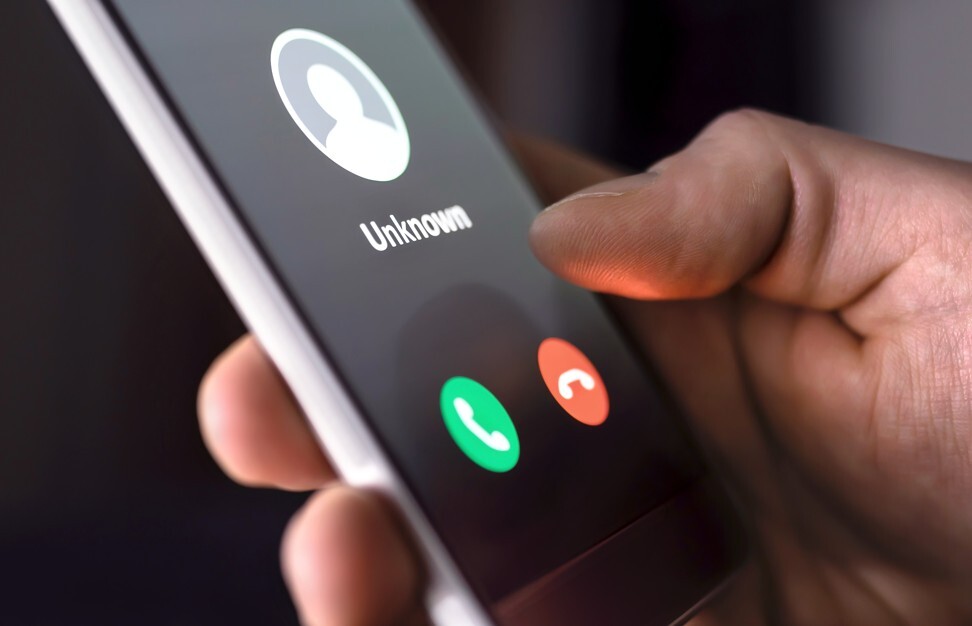
Indian call centre that cheated Americans of US$14 million gave staff Christmas bonuses
- Workers used fake American accents to swindle some 4,500 people by claiming their bank accounts were linked to drug cartels in Mexico and Colombia
- The racket is the latest in a spate of scandals involving fake call centres, with new cases being discovered by cybersecurity investigators every few weeks

A call centre racket in India swindled some 4,500 US nationals out of more than US$14 million over the past two years, after convincing them to hand over their money by claiming their bank accounts were linked to drug cartels.
Police in New Delhi, who said they were stunned at the scale and sophistication of the operation, have been interrogating more than 50 people who were arrested after a December 17 raid on its premises.
The employees of the call centre in Peera Garhi, west of Delhi, would put on American accents and call potential victims pretending to be officials of various American law enforcement agencies – social security or drug enforcement or the US Marshals service.
They would tell people that their bank accounts were going to be frozen or seized because they were linked to criminal transactions with drug cartels in Colombia and Mexico.
The callers said their bank details had been found at the crime scene and, following their arrest, they would have to prove their innocence in court.
In conversations lasting hours, the callers tried to manipulate their victims to the point where they faced the choice of either being arrested or opting for a “dispute resolution” which involved the payment of a penalty.
Throughout the conversation, the employees used a detailed script for asking questions and responding to queries. When the person finally opted for dispute resolution, they were asked to pay in Bitcoins or Google gift cards and were assured that the money was going to be transferred to a “safe government account”.
Some of the people we arrested had experience working in a genuine call centre where they had been taught American accents, and they passed on this skill to the newcomers
When police broke up the racket, they found 90 computers and 50 mobile phones. The call centre even had a human resources policy offering graded salary scales, bonuses for Christmas and for those who could get people to capitulate fast, as well as paid holidays.
The police said the kingpins behind these fake centres often had working knowledge of how legitimate firms in the industry were run, and also invested large sums of money on the premises, computers, phones and software.
“Some of the people we arrested had experience working in a genuine call centre where they had been taught American accents, and they passed on this skill to the newcomers,” said Anyesh Roy, Deputy Commissioner of Police, Cyber Crime, who is leading the investigation. “Their experience also gave them the confidence they needed to pose as American law enforcement officials, often threatening imminent arrest.”
He added that while the local news often featured cases where foreigners were targeted, most victims of call centre rackets tended to be Indians.
This extortion racket is merely the most recent in a spate of scandals involving fake call centres. Every few weeks, a racket to dupe Americans or other foreigners is unearthed by the cybersecurity crime wing.
Last year, Americans were fleeced on the pretext of providing gift coupons. They were lured by the prospect of lucrative gift coupons online and then charged a US$100 to US$500 service charge.
But easily the trick of choice for these extortionists is to call people in Britain or the US and tell them their computer had been infected by virus for which an urgent antivirus download was required. The fraudsters then sent a link which contained malware. Once users clicked on it, their bank and credit card details were exposed.
In August, police raided a fake call centre in Gurgaon, northern India, and found that more than 30,000 Americans had been cheated through this method.
In October, Indian police, working with their American counterparts, broke up a call centre racket based in six Indian cities. The victims, elderly Americans, had received calls saying their computer had a virus. They were given a toll-free number to call.
When they did, the fraudsters asked the victims to give them remote access to their computers so that they could “fix” the problem. After listing a range of fake problems in the computer, they demanded a fee for the non-existent software and services that had been provided.
In a racket in Bhopal, central India, an employee told the police he had cheated a US national of US$25,000 in just one day. At the office where he worked, police found the data of almost 1 million American citizens on 120 computers.
According to cybersecurity expert and lawyer Pavan Duggal, more call centres in India were “going rogue” due to inadequate industry regulations.
“It’s easy to set up a call centre. Indian law doesn’t provide either for oversight and supervision, or for penalties if they cheat people,” Duggal said. “The provisions are far too vague and generic. The absence of a deterrent is what allows them to flourish – going rogue to make quick money becomes attractive when the risk is so low.”
Often, when a fake call centre is closed, it resurfaces somewhere else, he added.
“We have hardly any convictions in these cases, which is why no one is frightened of the consequences,” Duggal said. “The law needs to be much tougher.”